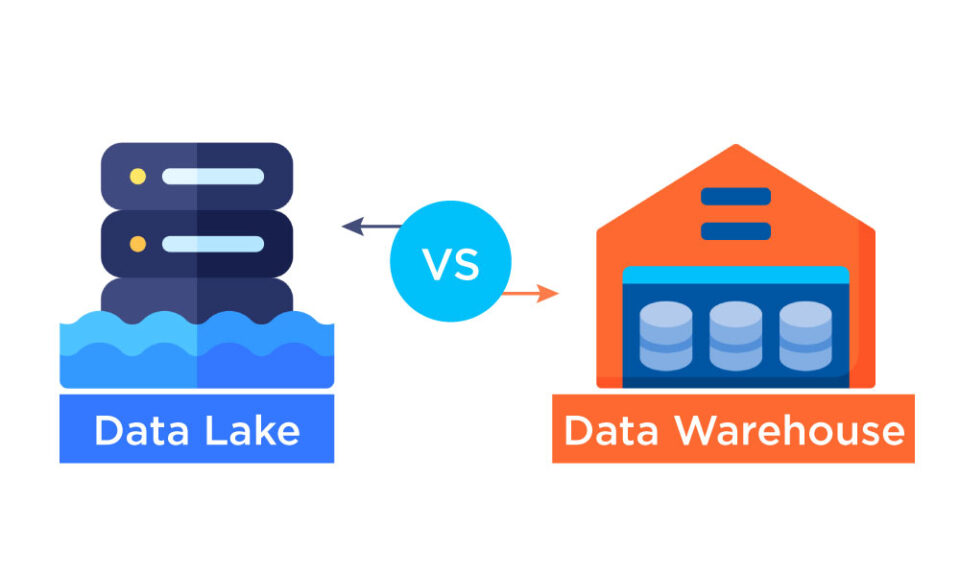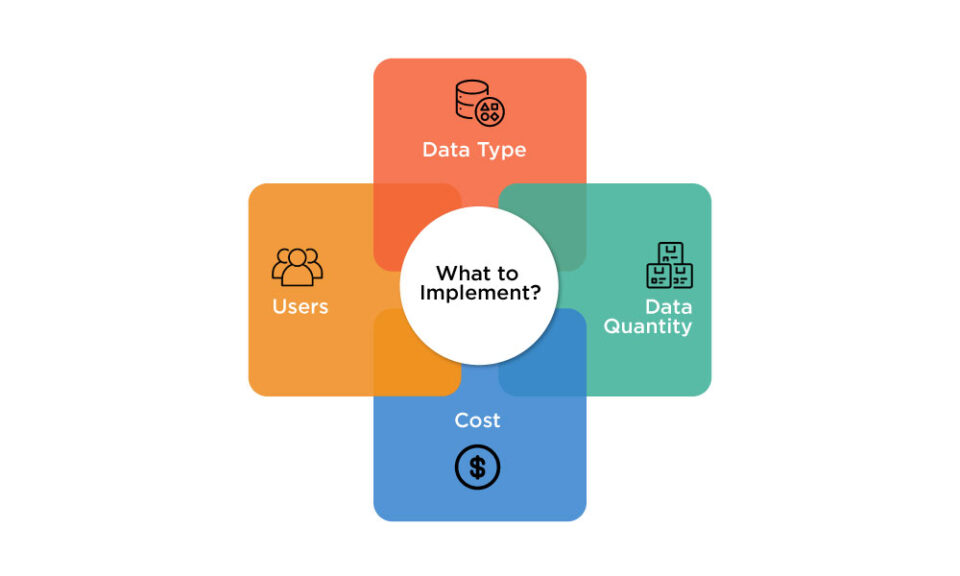Every day, people around the world create about 402 million terabytes of data. Similarly, people regularly utilize large amounts of data, especially for commercial purposes. Companies need vast databases to operate in a competitive industry. However, managing, analyzing, and storing big datasets is often challenging for enterprises. To address such situations and manage bigger datasets, companies often intend to integrate additional systems. The data lakes and data warehouses are among the strategies that can easily manage and store company data.
Sources show that more than 50% of companies worldwide encounter difficulty cleaning their data. Consequently, around 80% of business data utilized contemporarily is unstructured. Such practices also contribute to data dislocation and loss. As per experts, around 40% of enterprises do not have an idea of where their data is stored. Overcoming all the hurdles, only 16% of companies can successfully incorporate a data-driven approach.
Integration of mechanisms such as data lake and data warehouse can be highly beneficial for companies aiming for digital transformation. Alongside boosting data quality, these systems can also assist in enhancing businesses’ decision-making processes. Nevertheless, data lakes and data warehouses differ in many aspects. In this article, we shall understand both terminologies more profoundly alongside discussing significant differences between data lake vs data warehouse.
What is a Data Lake?
Data lakes (DL) are a repository that stores, manages, and protects larger datasets in their native format or structure. Here, the data can be of any type, volume, and structure. Data lakes can store both structured and unstructured data without any pre-determined data requirements or schema.
To locate required data easily in the vast sets, data lakes enable distinctive identifiers or metadata. Such identifiers make it convenient to search, find, and utilize a certain amount of data. Data lakes allow real-time data processing and assessment using different programming languages such as Python, SQL, R, and others. There are various tools and platforms like Hadoop File System that enable data lake facilities.
With the increasing requirement and usage of data in businesses, such platforms have also gone through advancements, integrating cloud facilities to support vast datasets. Below are the notable advantages of data lakes:
- Centralized data storage: Data lake’s centralized system to store data empowers businesses to get rid of the possibilities of data duplicates, silos, and security threats. Moreover, such an approach supports effective collaborations within bigger companies.
- Flexibility: Data lakes can store and process structured as well as unstructured data, enabling the capabilities of analytics for each dataset.
- Scalability: A data lake's storage system is highly scalable as it encourages self-service capabilities. Moreover, the system offers a sandbox to streamline workflow, utilizing automation, and providing high scalability.
What is a Data Warehouse?
Data warehouse (DW) is an advanced data management system that lets store and manage bigger databases effectively and boost business intelligence (BI) endeavors. Such mechanisms contribute remarkably to the decision-making process of companies, enabling opportunities for better comprehension and prediction.
Previously, companies leveraged data warehouses as an on-premises system to gather, clean, prepare, load, and maintain databases. However, the practices have transformed over the years, and data warehouse has become a ML-powered dedicated or cloud-based appliance with the abilities of data analytics, visualization, and presentation.
A data warehouse is commonly integrated for analytics and reporting. Extract, transform, and load (ETL), metadata, SQL query processing, governance, security, and data layer are the crucial components of DW. Below are the benefits of integrating a data warehouse into business:
- Enhanced data quality: Data warehouses not only gather data from different sources but also clean, shortlist, and standardize data while centralizing it. The refined data includes great insights that assist businesses.
- Quick business insights: With the capabilities of advanced analytics and ML integrations, data warehouse can offer fast unique and crucial business insights saving time of the companies.
- Robust decision-making: The availability of high-quality data empowers organizations to make solid and data-driven decisions.
Data Lake vs Data Warehouse: Top differences

| Data Lake | Data Warehouse | |
| Data type | Data lakes can store and manage structured, unstructured, and semi-structured data in the native format. The objective of such an approach is to make raw datasets ready for analysis. | Data warehouses generally store and manage structured data transacted from other applications used and processing systems. Stored data in warehouses is usually clean and organized. |
| Schema | In data lakes, the schema is set after data storage. Here, the technique adopts the approach of schema-on-read. | Conversely, in data warehouses, schema is set prior to loading data into the system, considering the schema-on-write approach. |
| Usage | Data science applications with machine learning abilities, predictive modeling, and further complex analytics tactics generally utilize data lakes. For each purpose, the analytics goals are set beforehand. | Data warehouses are utilized for comparatively less complicated business intelligence, ad hoc assessment, data visualization tools, and reporting with a pre-set objective of evaluating business functions and monitoring key performance indicators. |
| Cost | The hardware and tools, such as servers and storage systems required for data lakes, are comparatively cost-effective. However, the cost depends on the size of the data lakes. If the size is larger, it can cost more. | Data warehouses include large servers and storage systems, which can be expensive. Alongside that, data warehouse management can also be costly. |
| Data processing methods | Data lakes significantly depend on extract, transform, and load (ETL) processes. Under this tactic, data is processed and sorted for diverse uses. | Data warehouses also rely on the ETL method for data storage and preparation. However, the structure of data is refined prior to initiating it for analytics tools and BI. |
| Storage | Data lakes utilize several non-relational databases to store data, such as cloud storage, Hadoop, and NoSQL. | However, data warehouses use relational databases to store data, such as common disk storage. |
Which to Implement: Data Lake vs Data Warehouse?

Data lake vs data warehouse are cutting-edge data storage and management strategies that can support businesses remarkably. While determining the appropriate mechanism to store and assess data for an organization, one has to consider the following components:
- Data type: While choosing between data lake vs data warehouse, it is essential to comprehend the type of data, for example, structured, unstructured, semi-structured, or raw data.
- Data quantity: Evaluating the amount of data is also significant as it depends on the flexibility or data distribution.
- Cost: The key factor in selecting the accurate mechanism is its cost. If an organization does not have enough budget to invest in either a data lake or a data warehouse, the integration process can be challenging.
- Users: Usually, data scientists and data engineers utilize data lakes. On the other hand, business analysts prefer to leverage data warehouses. Hence, the implementation process also relies on the users.
In Conclusion:
Data is doubtlessly an integral part of businesses; however, successful data usage depends on how companies store and assess data. Data lake and data warehouse are two instrumental mechanisms for data storage and management. Alongside implementing a data storage strategy, it is crucial for organizations to be able to interpret each set of data stored.
Comparing data lake vs data warehouse reveals that each strategy offers unique benefits and limitations. Therefore, choosing a tactic that aligns with the company goals, offering high scalability and flexibility, is important.
Was the article informative? If so, you’d also like to explore our other articles.
Explore More:
Now Is the Time for You to Know the Truth About Cloud Computing & Big Data




